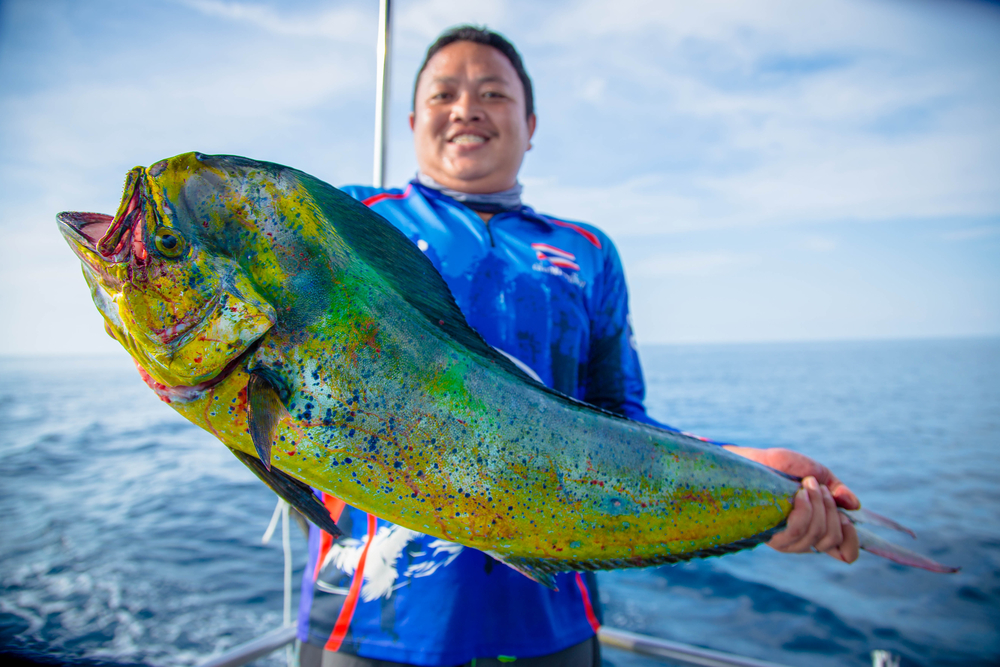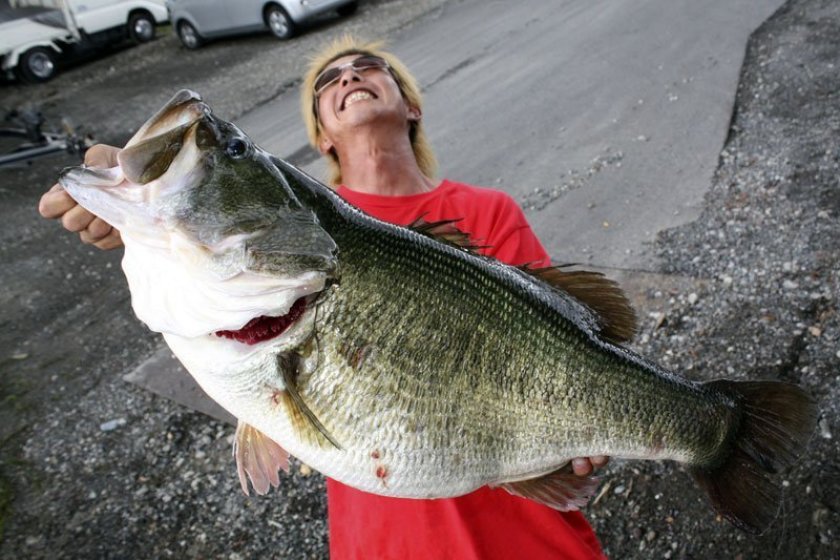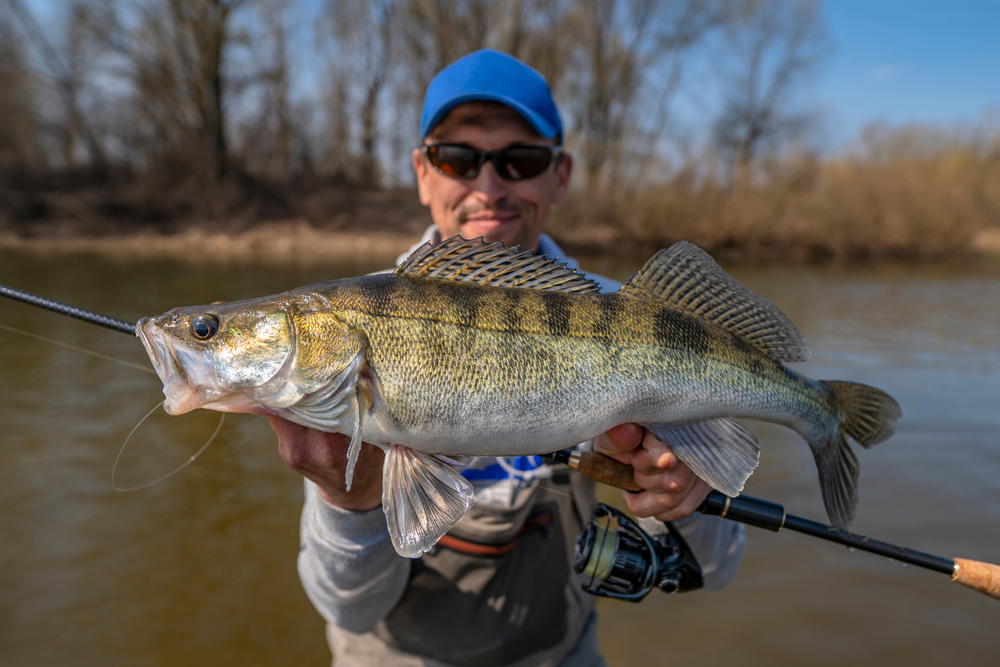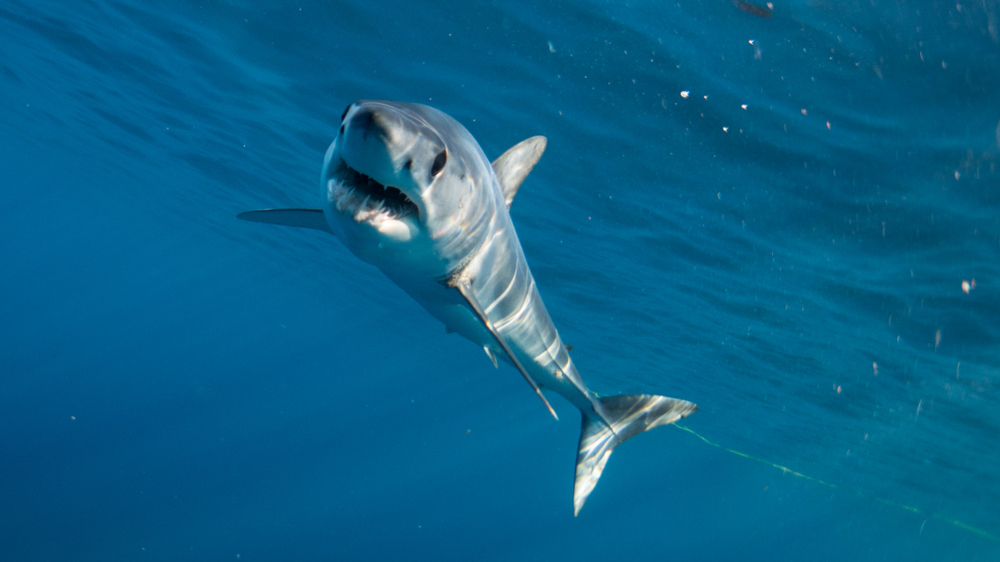Any angler who reaches for their rod and reel for a day of fishing dreams of reeling in the catch of their lives. While the clichéd “a bad day on the water beats a good day at work” mantra holds up for the most part, sometimes, we really wish we could manage to catch that fish we can brag about forever. And what better fish to boast about than a world record fish? Take Manabu Kurita’s largemouth bass record for example. For years this dedicated angler tried to break a record set way back in 1932, getting close but not quite reaching the otherworldly mark of 22 lbs 4 oz. Sure enough, in the summer of 2009, Kurita finally brought home the fish of a lifetime from Lake Biwa in Japan, tying the hallowed 77-year-old record and achieving worldwide fame in the process.
Catching a world record fish takes dedication, a pinch of luck, and a deep knowledge of rules set forth by the International Game Fish Association (IGFA), the organization most recognized for keeping record fish catches. The dedication and luck is up to you; for the rest, read on to find out how you can get on your way to getting your name in the record books.

Choose your World Record Category
There are two overriding categories when it comes to world record fish: weight and length. Within those two categories, there is also special recognition for fly fishing catches. For decades world records were measured in weight only, but in keeping with its mission for conservation, the IGFA introduced at the beginning of 2011 a category for those who do not like the idea of killing a fish just to get a record. Anglers can now get worldwide acclaim with length measurements, based on well-taken photographs you provide. Just as certified scales must be used to apply for a world record, so to must IGFA-approved measuring tape be used for length-based applications. Ensuring you have the right equipment to measure the weight or the length of your fish is crucial to getting that coveted world record certificate.
The heaviest fish caught no matter what line or rod was used is called an all-tackle world record. Getting the recognition for an all-tackle world record is the highest honor an angler can achieve, but don’t be discouraged if you fail to beat a record by a measly few ounces. The IGFA also keeps records for the largest fish caught for specific line classes (2lb-130lb) and tippet classes (2lb-20lb). So that walleye you caught on that 8-lb test line may not be enough to be called the biggest catch ever, but it may be the biggest for that line class.
Read the Fine Print
An official IGFA measuring device, as shown here, must be used for length-based world records.
One of the worst feelings in the world must be having a sure-fire world record catch disqualified because you failed to comply exactly with the rules set forth by the IGFA. All it takes is one silly mistake to ruin your chance of a record, like using too long a leader, or too short a rod tip, or briefly getting someone to help you position your rod on your hip. The IGFA has very strict rules when it comes to record catches because they are not only trying to promote fair recreational angling, but also the glory of an angler landing a fish all by themselves. Below are just some of the key rules to remember when trying to catch a world record fish:
- Wire lines are prohibited.
- Gaffs are prohibited for catches submitted to the catch-and-release length category. Anglers must use nets that do not exceed eight feet in length.
- You cannot rest the rod in a rod holder, gunwale of a boat, or any other object while playing a fish. The challenge is for you to reel in the fish under your own strength.
- No other person can handle the rod or touch the line at any time.
- Bringing the fish into shallow water with a boat or other device that limits a fish’s ability to swim is prohibited.
There are dozens of more rules that must be followed for wannabe record-holders, including proper equipment and application procedures. For a full list of rules and requirements, as well as a downloadable world record application form, visit the IGFA rules page by clicking here.
Where to Catch a World Record Fish
Now that we’ve gone through some of the nitty-gritty of how to catch a world record fish using IGFA rules, it’s time to go where the fish are. Catching a world record fish all comes down to location: you may have the most flawless technique in all of Minnesota for catching largemouth bass, but it won’t mean squat seeing as how the state’s record is nearly 14-pounds less than Kurita’s fish. You’d have a better chance going after a new walleye record. Below are some of the more popular species of gamefish out there and the fishing spots you need to try to give yourself the best chance for a world record.
Largemouth Bass – Castaic Lake, California
Current All-Tackle Record: 22lb – 4oz

It has already been mentioned that the recent record was just tied in Lake Biwa in Japan, but is that the only possible location? There are several lakes in the United States capable of holding a world record, but nowhere has there been so many 20-pound plus fish as Castaic Lake. While the fishery has dwindled a bit since the 90’s, this lake is still legendary for its monster largemouth bass. Bass Fishing 101!
Chinook Salmon – Kenai River, Alaska
Current All-Tackle Record: 97lb – 4oz
This one takes a bit of effort, but the rewards are more than worth it. A trip up to the Kenai River for king salmon is one of the greatest fishing adventures you could ever hope to have. Hit the river at the right time and you’re sure to get a chance at the current record. The 97lb record has been around since 1985, so be prepared for a tough fight to claim the all-tackle recognition.
Rainbow Trout – Lake Diefenbaker, Saskatchewan
Current All-Tackle Record: 48lb
In order to beat this record you may have to compete with a pair of twins who have made it their specialty catching world record rainbows. In 2007, Adam Konrad set the world record at 43lb-6oz at Lake Diefenbaker. Just two years later, his twin brother, Sean, annihilated that with a 48-pound behemoth from the very same lake.
Walleye – Old Hickory Lake, Tennessee
Current All-Tackle Record: 25 lb

This record, set back in 1960, is a perfect example of the importance of supplying as much photographic evidence and supporting measurements as possible to keep a world record. At one point, the Fresh Water Fishing Hall of Fame disallowed this walleye catch as a world record as the organization believed, based on the photographs provided, that the fish could not possibly weigh as much as claimed. Over the years further studies led the Hall of Fame to admit they made a mistake to disallow the record, and promptly reinstated its world record status. The lake still has some monsters out there – just be sure to get all the evidence you can get to support your claim!
Pacific Blue Marlin, Kaaiwi Point, Kona, Hawaii
Current All-Tackle Record: 1376lb
Forget hitting the beaches to relax, go to Hawaii and set a world record for one of the fishing world’s most legendary gamefish. The fast-swimming, high-flying blue marlin is a treat to reel in at any weight, but it takes a great deal of strength and determination to bring in a brute over 1300 pounds. This is another long-standing record revered by anglers, having been set way back in 1982.
Mako Shark, Massachusetts
Current All-Tackle Record: 1221lb

Disappointed about the collapse of the Boston Red Sox this season? Or are you on the other side and happy this giant of a franchise blew it in the end? No matter your affiliation, ease the pain or carry the joy forward with an attempt to catch a world record mako shark off the coast of Boston. The current world record was caught near Chatham, MA in 2001. The summer is actually the best time for this shark, but it’s still a blast going after what many anglers call “the bully of the ocean.” Prepare for a great battle!
Red Drum, Pamlico Sound, North Carolina
Current All-Tackle Record: 94lb – 2oz
Redfish is the pride of North Carolina coastline fishing. The current record is nearly 30 years old, but many big-time red drums have been caught since all around Pamlico Sound and the Outer Banks, making it just a matter of time before a new world record is seen. Population numbers dropped in the late 1990’s, but conservation efforts have seen redfish make a return in recent years.
Striped Bass, Chesapeake Bay
Current All-Tackle Record: 78lb – 8oz
Stripers can be caught all along the North American East Coast, but it’s hard to deny Chesapeake Bay is the place to be for primetime striped bass fishing. Sure, the current world record was set Near Atlantic City back in the early 80’s, but if ever there’s a record just waiting to be broken, it’s this one. For a chance at that coveted world record, the best time to go is in the spring in South Bay, where the biggest of the big come out to play. Late November/early December also produces monster stripers.






